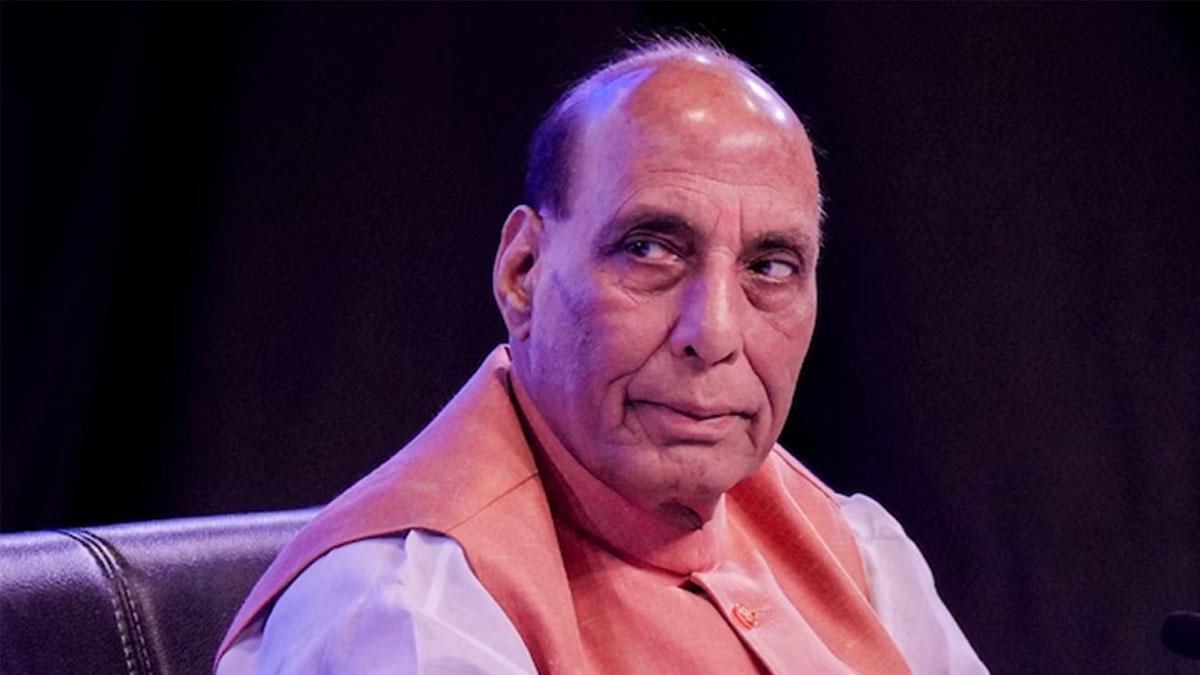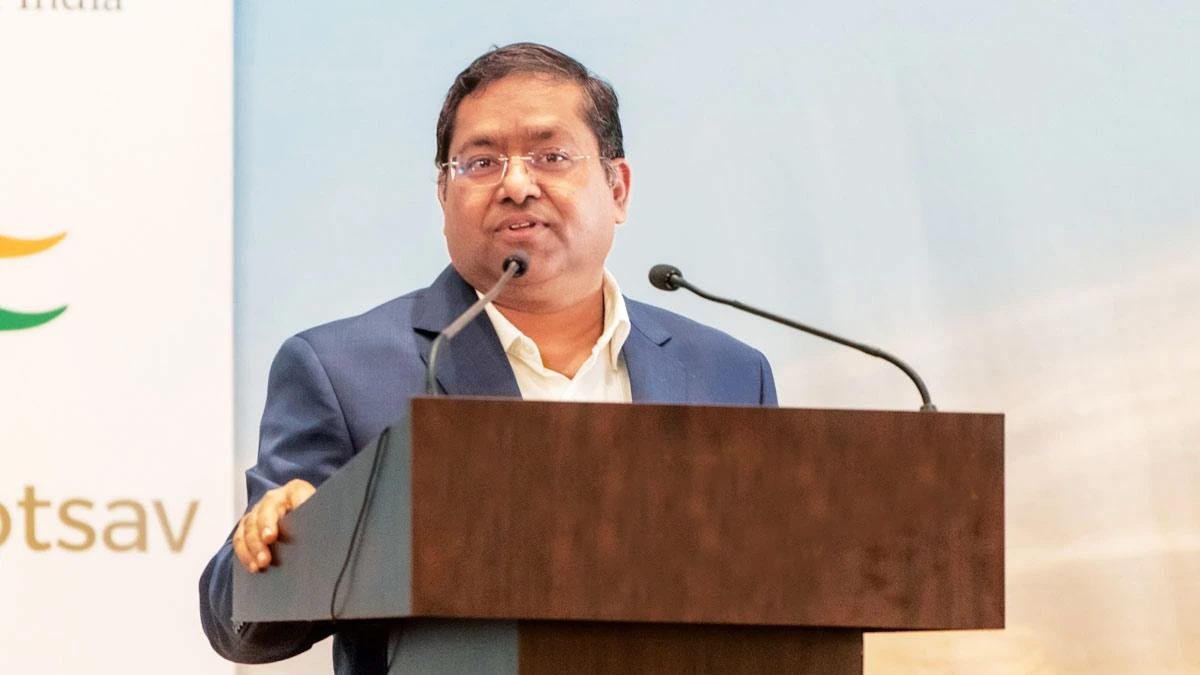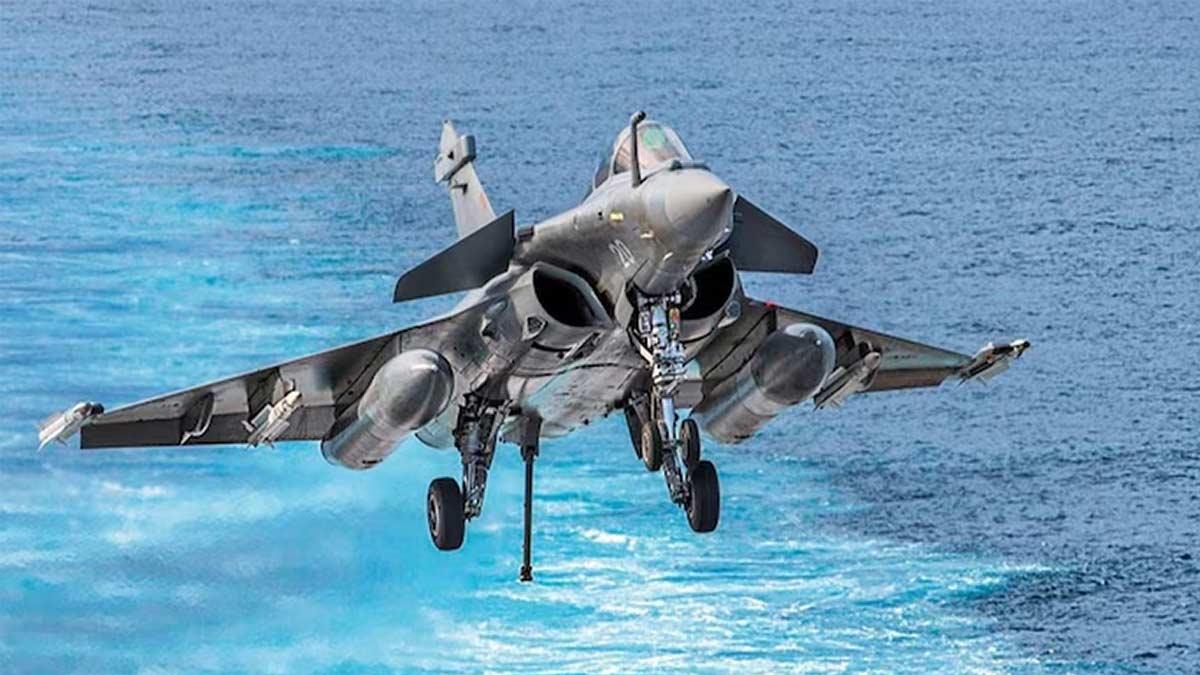A day after it emerged that India had deployed BrahMos supersonic cruise missiles to attack Pakistani air bases before a ceasefire deal was signed, Defence Minister Rajnath Singh commissioned the BrahMos Integration and Testing Centre in Lucknow on Sunday.
At the function, Singh underscored that BrahMos is not merely an expression of military prowess—it represents the strength and determination of India's military.
"Coming to BrahMos, everyone knows that BrahMos is a world's fastest supersonic missile. BrahMos is not an offensive weapon but a message by itself. A message of Indian Armed Forces' strength, a message of deterrence against the enemy, and a message of our determination towards protecting our border," Singh added.
Quoting the inspirational lines of erstwhile President and great "Missile Man" A P J Abdul Kalam—who played a crucial role in India's Pokhran nuclear tests—Singh further stated, "unless India stands up to the world, no one would respect us in this world… fear has no place… strength respects strength".
Singh also referred to Operation Sindoor, which was to destroy terror camps on the other side in Pakistan. He asserted that the mission showed India's willingness to implement its zero-tolerance policy on terrorism by taking strong action outside its borders. "The Indian Army initiated Operation Sindoor with the intent to destroy terror infrastructure in Pakistan. We never aimed at their common people. But Pakistan tried to target India's residential zones as well as temples, gurdwaras and churches," he added.
Addressing through video conference at the inauguration of the new BrahMos facility, Singh complimented the Indian military for their restraint and discipline, even in the face of a firm military retaliation. He asserted that the operation was not just a tactical operation, but a deep expression of India's political, social, and strategic prowess. "Whatever India does to act against terrorism, it makes sure that the terrorist bases as well as their masters' bases will not be secure on either side of the border… We did not just act against bases bordering the border, but the noise of the Indian Army's action was heard even in Rawalpindi where the headquarters of the Pakistani army is located," he added.
Pointing to a trend of robust reactions, Singh cited past strikes like the surgical strikes following the Uri attack, the airstrikes following Pulwama, and now successive strikes following the Pahalgam attack. "Through the surgical strikes following the Uri attack, the airstrikes following the Pulwama attack, and now successive strikes following the Pahalgam attack, the world has seen what India is capable of doing if terror attacks are conducted on its land.". Pursuing the zero-tolerance approach to terrorism, Prime Minister Narendra Modi made a statement that "This New India will act swiftly against terrorism both within and beyond the border," he stated.
Uttar Pradesh Chief Minister Yogi Adityanath, joined at the inaugural by his two Deputy Chief Ministers, highlighted the capabilities of the BrahMos missile. "You will have all got a small vision of how much power of BrahMos came during the recently undertaken Operation Sindoor. In case you missed out, please get it known from Pakistan's folks," stated Adityanath.
Adityanath added that India would now face terror activities with the ferocity of war until they are wiped out. "Terrorism is similar to the tail of a dog, which cannot be made straight and does not comprehend the language of love. It must be responded to in its own language and Operation Sindoor has conveyed a message to the world in this direction," he stated.
The BrahMos unit, based in Sarojininagar, Lucknow, has been built at a cost of ₹300 crore as an Indo-Russian collaborative project. It was laid in 2021. The facility also constitutes a critical component of the UP Defence Industrial Corridor, a strategic project initiated by Prime Minister Narendra Modi in 2018.
Along with the BrahMos center, Singh and Adityanath also inaugurated the Titanium and Super Alloys Materials Plant, also called the Strategic Materials Technology Complex, further enhancing the defence manufacturing base in the state.
Read also| DGMO: Pakistan Army Suffered 35-40 Casualties in Indian Strikes
Read also| Pahalgam Attack a Tragedy for Judiciary, Says Justice BR Gavai


















